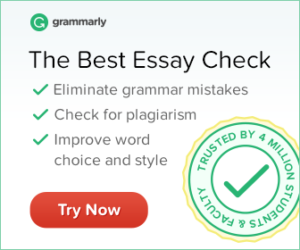In addition, international companies, government agencies, scholarship programs, and 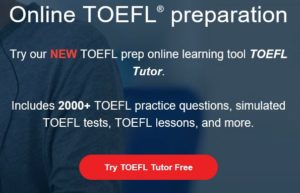 recruitment agencies use TOEFL Study scores to evaluate English proficiency. Please note, I include affiliate links within this post to support the maintenance and development of this site.
recruitment agencies use TOEFL Study scores to evaluate English proficiency. Please note, I include affiliate links within this post to support the maintenance and development of this site.
General Strategies for TOEFL Study
One of the most useful tools in language instruction is the concept of immersion, in which the student uses only the language being studied to communicate for a specific period of time (usually an entire class). TOEFL preparation can accommodate this strategy with respect to all four areas of the test. Watching films in English can be helpful for the listening section of the TOEFL, while reading newspapers in English can help with TOEFL reading skills (both of these strategies allow students to infer a great deal of information from context). For TOEFL speaking, test-takers can get together with other students and hold conversations only in English. Everyday activities can be used to practice TOEFL writing, such as emails, shopping lists, birthday cards, or other personal communication. It is a good idea to devote some time each day to immersion in the English language, which will help build the exact functional English capabilities that are evaluated on the TOEFL. Research shows that learning is best accomplished in small increments, since this approach allows the brain to process and consolidate new knowledge. When taking the test itself, it is important to manage time effectively. Do not agonize over the answer to any single question, because this can be a waste of time that will harm scores far more than one incorrect answer. Adequate rest and nutrition in the days leading up to the test will help ensure that students are not distracted by physical discomfort.
1. Listening Comprehension:
Measures the ESL student's ability to understand North American English.
TOEFL iBT Reading Strategies
This post contains affiliate links and I will be compensated if you make a purchase after clicking on my links.
Students who perform well on the TOEFL iBT reading section have a large vocabulary, understand conventions of English grammar and punctuation, and have a strong command of the structure of written texts in terms of the organization of ideas. BestMyTest is by far the best in the industry. The development of these skills requires reading many different types of texts, especially those that relate to the academic 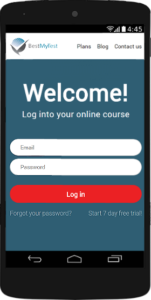 subjects commonly studied at the undergraduate level (e.g. science, history, or literature). Some tutors suggest the use of vocabulary flash cards to build knowledge of English words. While reading, students should practice separating factual information from arguments or assertions, and they should try to understand how evidence supports claims. It may also be helpful to write down important facts included in reading passages, which will also help reinforce writing skills.
subjects commonly studied at the undergraduate level (e.g. science, history, or literature). Some tutors suggest the use of vocabulary flash cards to build knowledge of English words. While reading, students should practice separating factual information from arguments or assertions, and they should try to understand how evidence supports claims. It may also be helpful to write down important facts included in reading passages, which will also help reinforce writing skills.
2. Structure & Written Expression
Measures the ESL student's ability to recognize language appropriate for standard written English.
TOEFL Study iBT Writing Strategies
Test-takers who succeed on the TOEFL iBT writing section are capable of writing essays with strong ideas, coherent organization, and standard use of English grammar. Practice writing commentary on reading passages that includes important facts and main points. After becoming more skilled at writing in English, students can practice writing their own opinion essays on political issues, historical events, their favorite subjects, or their own experiences. Focus on using evidence to support opinions, because this is an important skill for TOEFL writing. Maximize your TOEFL® score at BestMyTest Student efforts in the other TOEFL areas will be helpful to writing skills. This is intentional on the part of the test's creators, who wish to help students demonstrate the ability to combine and synthesize English-language abilities.
3. Vocabulary & Reading Comprehension
Measures the ESL student's ability to understand non-technical reading material.
TOEFL iBT Reading Strategies
Students who perform well on the TOEFL Study iBT reading section have a large vocabulary, understand conventions of English grammar and punctuation, and have a strong command of the structure of written texts in terms of the organization of ideas. The development of these skills requires reading many different types of texts, especially those that relate to the academic subjects commonly studied at the undergraduate level (e.g. science, history, or literature). Some 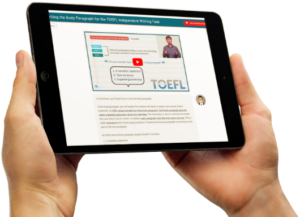 tutors suggest the use of vocabulary flash cards to build knowledge of English words. While reading, students should practice separating factual information from arguments or assertions, and they should try to understand how evidence supports claims. It may also be helpful to write down important facts included in reading passages, which will also help reinforce writing skills.
tutors suggest the use of vocabulary flash cards to build knowledge of English words. While reading, students should practice separating factual information from arguments or assertions, and they should try to understand how evidence supports claims. It may also be helpful to write down important facts included in reading passages, which will also help reinforce writing skills.
4. Essay Writing
Measures the ESL student's ability to express ideas in standard written English.
TOEFL iBT Speaking Strategies
For many students, correct pronunciation presents the most significant obstacle to strong performance on the TOEFL iBT speaking section. This is a crucial skill, because pronunciation can easily be the difference between clear communication and incomprehensibility. Most test-takers find it helpful to repeat lines aloud when listening to audio or watching video in English, paying special attention to issues such as word emphasis and tone of voice. BestMyTest Online TOEFL® Preparation Course is also essential to practice conversations with English speakers who are either native or fluent. Choose topics that require the expression of personal experiences and opinions, such as the events of the day, favorite subjects, or descriptions of family members.
The Test of English as a Foreign Language (TOEFL) is a widely accepted means of proving English-language competence for undergraduate or graduate study at universities in the English-speaking world. First offered in 1964, the TOEFL is now accepted by over 9,000 universities in more than 130 countries. The TOEFL is administered by Educational Testing Service (ETS), whose mission is to “advance quality and equity in education by providing fair and valid assessments, research, and related services.” Established in 1947, ETS has been described as “the world's largest private nonprofit educational testing and assessment organization.” For an introduction to and overview of the TOEFL, please have a look at the following topics:
TOEFL Basics
See this page for basic information about the TOEFL. Topics include an overview of the TOEFL as an assessment and its purpose; a summary of the structure, scoring, and timing of the TOEFL; a discussion of TOEFL validity studies; and an illustrative example of TOEFL scores and university admissions.
TOEFL Format
This page includes an important summary of the TOEFL's format. Test-takers will find descriptions of each TOEFL section, the types of exercises included, and the English-language skills assessed.
TOEFL iBT
Read this page for essential information on the TOEFL iBT. Learn about the core skills evaluated by the exam, sectional and total scoring classifications, test development, and test availability in North America and around the world.
TOEFL Paper-Based Test
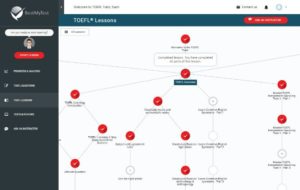 Students taking the paper-based TOEFL (PBT) should consult this page for information about policies, structure, and scoring as well as details on each PBT section. Residents of most countries will take the internet-based TOEFL (iBT) rather than the PBT.
Students taking the paper-based TOEFL (PBT) should consult this page for information about policies, structure, and scoring as well as details on each PBT section. Residents of most countries will take the internet-based TOEFL (iBT) rather than the PBT.
Internet-Based TOEFL versus Paper-Based TOEFL
The TOEFL internet-based test (iBT) is different from the paper-based test (PBT) in a number of ways. See this page for a comparison of the iBT and PBT in terms of content, scoring, availability, and use in college admissions.
Recent Changes to the TOEFL are always maintained as online updates to the program click TOEFL Online Dashboard – FREE TOEFL Preparation
Find out how the TOEFL has changed and evolved in recent years by reading this page. Students can also review scoring data for the first decade of the TOEFL iBT, from its introduction in late 2005 through 2015.
TOEFL Administration
View this page for important information on the administration and acceptance of the TOEFL. Learn about ETS policies with respect to acceptable identification, taking the test, academic honesty, and accommodations for disabled students.
TOEFL Registration
For the latest on TOEFL registration, read this page. Topics covered include procedures for iBT registration online, by phone, or by mail as well as registration policies for disabled students and those taking the TOEFL paper-based test (PBT).
TOEFL Test-Taking Strategies
TOEFL students can find useful strategies for preparation and taking the test on this page. This strategic overview includes general tips and approaches for the content of each TOEFL Study iBT section.
TOEFL Scores
Learn all about TOEFL iBT total scores, sectional scores, conversion of raw scores to scaled scores, scoring classifications, PBT scores, and score policies at universities by reading this page. BestMyTest Online TOEFL® Prep Dashboard
TOEFL History
The history of the TOEFL is covered on this page. Students can learn all about the exam's origins, earlier versions of the test, the development of the TOEFL into its current form, and the advantages of the modern test.
Test Day Overview for Students Taking the TOEFL
Test Day Chronology
ETS strongly encourages students to arrive at the test center at least 30 minutes before the test begins to accommodate the check-in procedure. Late arrivals, including students who do not allow sufficient time for check-in, will not being allowed to take the test. The check-in procedure involves electronic scanning of all test-takers to ensure test security, submission of required identification, the signing of a confidentiality agreement, and the assigning of testing stations. The test itself lasts for 200-230 minutes, including a 10-minute break. The variable testing length is due to the listening and reading sections, which may give additional time for experimental questions that do not count toward scores (these questions will not be identified as such on the test). The test sections are always presented in the following order: reading, listening, speaking, and writing (the break is after the first two sections). Once they complete the exam, test-takers must sign out, when they will be given an opportunity to cancel their scores if they wish. Students can expect to leave the test center approximately 4 to 4.5 hours after they arrived.
Arriving Prepared on Test Day
Advance preparation for test day can alleviate a great deal of stress and help ensure better performance on the TOEFL. First, be sure to pack all of the required items the night before the test, including all required identification documents, drinks, and snacks (the latter two are allowed only during breaks). Second, it is advisable to become familiar with the route to the test center and the parking situation before the day of the test (make sure to review these conditions at the same time of day as the exam, so that there are no surprises such as rush hour traffic). Third, test-takers should make sure they are getting adequate rest and nutrition on the day of and in the days leading up to their TOEFL administration. Fatigue and hunger can have a significantly damaging effect on scores. Finally, students should use the restroom before beginning the test. Proctors will allow test-takers to visit the restroom during the exam, but the test clock will continue to run, wasting valuable testing time.
Items Allowed at the Test Center
Students may bring a bag or backpack with personal items to the test center, but all personal items are subject to inspection and must be stored in on-site lockers. These items cannot be accessed while taking the test (drinks and snacks during the designated break period are the only exceptions). In the test room, students may not possess any personal items except their identification documents. Electronic devices of any kind are expressly prohibited, including cell phones and laptops. Test-takers are subject to searches of their persons and their belongings. Some items of clothing, such as neckties or scarves, may be inspected by test center officials, and students may not wear jewelry while taking the TOEFL (except for wedding rings). Note taking is allowed, but only on paper provided at the test center (for obvious reasons).
Test Center Rules and Regulations
Identity verification, along with presentation of identification documents, may also include signature comparison, biometric voice identification, and thumb printing, and test sessions may be video recorded. The required confidentiality agreement that all test-takers must sign stipulates that students may not communicate anything about the test's content, including questions, answers, and structure, to anyone. All personal items, aside from identification documents, may not be in the test-taker's possession while taking the exam. Students are also prohibited from communicating with other test-takers in any way, behaving in a disruptive fashion, or attempting to tamper with the test center computer. Test-takers may not leave their seats without the permission of test proctors. Students who violate any of these policies may are subject to dismissal from the test center, cancellation of scores, and forfeiture of testing fees. Universities named as score recipients may be notified of testing malfeasance, especially in cases of academic dishonesty.
Score Reporting after the Test
Unlike the procedure for some standardized tests, ETS does not provide unofficial scores immediately after the exam concludes. TOEFL score reports are available online about 10 days after the test date. Test-takers who provided an email address with registration will receive an email notification of score availability, and scores may be viewed via the student's account on the ETS website. Score reporting by standard mail is also available. ETS sends official score reports to the organizations indicated by the test-taker during registration approximately 13 days after the test, and these scores take 7-10 days to reach U.S. destinations and 4 to 6 weeks for all other countries. Test-takers should therefore assume that it will take at least three weeks for their prospective degree programs to receive their scores, or 6-8 weeks if those schools are outside of the United States.
Stress free studying
Learn from anywhere
It's easy to fit TOEFL Tutor into your day
Study anytime and anywhere with online test prep
Stress free TOEFL prep-no schedules, no classes and no commute
Mobile-optimized TOEFL app gives you freedom to study on any device
TOEFL reading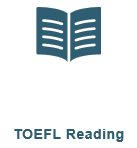
Get a high reading score by becoming familiar with academic topics & vocabulary and improving your reading comprehension, reading speed, and time-management skills.
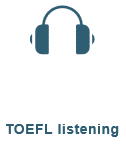 TOEFL listening
TOEFL listening
Get a high listening score by becoming familiar with academic topics & vocabulary and improving your listening comprehension, note-taking, and time-management skills.
TOEFL Speaking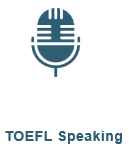
Get a high speaking score by becoming familiar with all speaking task question types and improving your speaking fluidity, coherence, and cohesion.
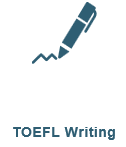
TOEFL Writing
Get a high writing score by learning basic & advanced essay writing structures and improving your ability to paraphrase and write coherently.

 guitars make a mellow tone; steel string guitars make a brighter, more metallic sound. One of the main things that will influence you in deciding what kind of sound you want is the guitar your favorite performer plays.
guitars make a mellow tone; steel string guitars make a brighter, more metallic sound. One of the main things that will influence you in deciding what kind of sound you want is the guitar your favorite performer plays.


















